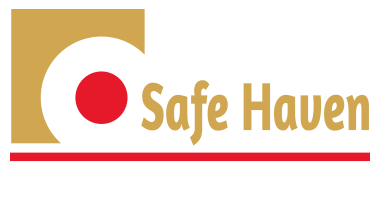About Safe Haven – A Ray of Hope
Grant Making Policy
This policy lays out our aims and principles in awarding grants and also a range of specific checks. Which will be applied to any given grant will depend on the nature of the grant application and will be decided on a case for case basis.
Inevitably, these will be more robust for any overseas grants, in order to comply with HMRC and Charity Commission guidelines on the transfer and management of funds for overseas projects.
Charitable Purposes
We can only fund projects for projects and activities that are exclusively charitable and fall within the objects of the charity, which are the:
The prevention or relief of poverty, primarily, but not exclusively in the UK by providing: grants, items and services to individuals in need and/or charities, or other organisations working to prevent or relieve poverty.
Poverty can both create, and be created by, adverse social conditions, such as poor health and nutrition, and low achievement in education and other areas of human development. There is no one single definition of poverty, which includes many disadvantages and difficulties arising from, or which cause, the lack of financial or material resources.
For our grant making purposes, we define it as not having access to the basic necessities of life which the majority of the people would regard as necessary for a modest, but adequate, standard of living. For example, clean water, adequate food, shelter and clothing, and access to basic school education and health services. In the UK, this typically means households living on less than 60% of median income who go short in some unacceptable way, whether or not they are eligible for state benefits.
We make grants to organisations whose activities address these issues, such as food banks. For individuals, our procedures are detailed below.
Promotion
Often those we are trying to reach are the least able to be able to research and find us and to make effective applications. Consequently, it is important to ensure that those we are seeking to reach are made aware and that the application process is kept as simple as possible.
Ways in which people can be made aware include promotion:
- Via our own or other websites, such as funders, local community groups and foundations.
- Social media – either groups relevant to our activity, or local town/village/community groups.
- Free adverts in town, Parish or Mosque magazines/newsletters, or similar, or posters in doctors’ surgeries, libraries or supermarkets.
- Through networks of those who come into contact with potential beneficiaries, such as social services, the police/probation service, CAB, schools, medical professionals and charities.
For some groups, we may provide information a different way, such as an additional language, or to make these accessible to people who have disabilities.
Funding Criteria
The charity will consider all applications that fall within our charitable purposes and meet our funding criteria and, for which, the due diligence process has not identified any unacceptable issues.
- Charities – organisations must have a written constitution, with exclusively charitable aims, and be run by a minimum of at least 2 trustees.
- Governmental Agencies – support will only be considered where these is either no, or inadequate statutory provision.
- Other Organisations – in the event that the trustees wished to support an organisation that isn’t a charity, they are aware of and would comply with the Charity Commission’s guidance on doing so.
Grants will be made based on the funding available and solely on merit.
If applicable, applicants must also demonstrate compliance with the following criteria:
Education and Training
Details and confirmation that any accreditation/qualification frameworks, examination body requirements or other statutory requirements have been met.
How speakers/trainers/teachers are selected and confirmation that those delivering training/courses have the appropriate qualifications and experience necessary to do so.
Details or confirmation that no adverse educational audit or inspection reports are expected, or have been received within the last 3 years.
Details of subject/topics/structure, method of delivery, submission of attendance/completion certificates or other requirements.
Details of the educational benefits in undertaking the course/programme, with links to supporting evidence by statutory authorities and/or peer reviewed research.
Health
Details of the services to be provided; treatments, rehabilitation, or other services.
How and where these services will be provided.
Details and confirmation that the organisation is registered and/or licenced by the statutory authorities and/or relevant professional body and meets any standards or frameworks required.
Details or confirmation that no adverse medical audit or inspection reports are expected, or have been received within the last 3 years.
Details and confirmation that individuals delivering the services have the relevant professional qualifications and experience to do so.
Details of who will be able to access the services, any exclusions and confirmation that no charge will be made for receiving the services.
Details of the benefits of receiving the services will have, including links to robust evidence that demonstrates this, such as provided by statutory authorities and/or peer reviewed research.
Funding Priorities
The number of good applications is likely to exceed the funding available, so the trustees will prioritise funding for the most vulnerable, particularly children, the disabled and other marginalised or excluded groups.
Grants To Individuals
We may make small grants to individuals to meet a particular need, or in response to a crisis or disaster. For example, grants for bedding, clothing or essential domestic appliances, or for energy or water bills, or repairs. In Nigeria, we may also make grants to enable people to access basic healthcare or schooling, which would otherwise not be affordable. This may include grants to pay for medical treatments and medicines, or books or other educational materials.
We don’t wish to pry into peoples’ lives unnecessarily, or make it more difficult for them to apply. However, sadly, there are many fraudsters out there and their techniques can be very effective. Equally, some individuals may not understand their own needs (eg medically) and supporting them in a taking an inappropriate course of action may potentially be detrimental to their wellbeing.
Therefore, we may require you to provide supporting information and/or recommendations to support your application. For example, we may ask for:
- Details of why an item or service is needed, the cost and why you cannot afford it. For example, by providing details of your monthly income and expenditure.
- An invoice, bank statement or similar and/or;
- Specific recommendations from a trustworthy 3rd party, such as a debt counsellor, doctor or school, as appropriate.
We may also decide to make payments directly to suppliers on your behalf. For grant payments directly to individuals, we ask you to provide receipts.
Grants To Organisations
Listed below is confirmation and/or information that you will be required to submit with you application, in order to be considered for a grant. Not all will apply in all circumstances and you should seek guidance from us, if you are unsure.
Ethics
Confirmation that neither the company, directors nor senior management have been the subject of regulatory censure, criminal or civil court action (other than trivial offences), currently, or within the last 3 years.
Use of funds
Confirmation that funding will be used for exclusively charitable purposes, no bribes, facilitation fees or similar will be paid and that no payments will be made to related parties, such as family members or business associates.
Finance
Submission of the latest audited accounts or, if not available, latest company/management accounts, with an explanation as to why audited accounts are unavailable.
An explanation of any material finance related issues that the grantor may reasonably wish to be aware of. These include, but are not limited to a recent modified or qualified audit opinion, or emphasis of matter statement in your most recent accounts, potential loan default, action by creditors to recover debts, cash flow (liquidity) issues, major financial risks, or concerns over longer term sustainability.
Compliance
Details of company/NGO registration, professional and/or trade body membership, including registration/membership numbers.
Confirmation that any regulatory permissions, licenses or approvals required for the project have been obtained, or an explanation of what action is/will be taken to do so.
Safety
Safeguarding – Applications are to include details of the procedures used to ensure people are kept safe from harm and how management ensure these are applied consistently. These must comply with the charity’s safeguarding policy and legislation, and any regulation specific to the activity.
Health & Safety at Work (H&SW) – the organisation has a robust H&SW framework and management oversight, with adequate policies that are consistently applied and training that is undertaken by everyone who needs to and is up-to-date.
Insurance – Details of insurances held, with a certified true copy of the insurance policy.
Property/Assets Created
Confirmation that any assets, intellectual property or other material of financial value created will not be disposed of at any point, without confirmation that any proceeds will be used for an approved charitable purposes and the prior written permission of the trustees. In the event this is not forthcoming, the asset is to be disposed of in accordance with the trustees’ instructions.
Grants To Organisations Outside The UK
Anti-Bribery
The Bribery Act 2010 is applicable globally and it is illegal to offer, promise, give, request, agree, receive or accept bribes, even if doing so in an overseas country where is legal.
Confirmation that the grantee has robust anti-bribery procedures that are consistently applied, to ensure that the risk of bribery or corruption is minimised.
Submission of Applications
- We require submissions to be made using our application form and these may not be considered, if the word count limits are exceeded.
- However, you may include relevant supporting documents, such as a programme plan or budget.
- Applications may be sent to us by post or as an e mail attachment.
- Check your submission to ensure that you have included the following:
- How you meet our funding criteria.
- And our funding priorities.
- Information on your organisation/individual.
- Project/bid details, such as amounts, numbers, timetable.
- Evidence of the need and impact the funding would have.
Checks and Due Diligence
The charity will carry out sufficient due diligence on grant applicants to confirm the identity of the applicant and that.
- Any funding will be applied in accordance with the charity’s charitable purposes.
- Funds will not be knowingly used for illegal purposes, such as money laundering, bribery or financing terrorism.
- The applicant does not hold views, or have any involvement in activities contrary to the charity’s values and charitable purposes.
We have a robust, risk based Due Diligence procedure.
Decision Making Process
Applications will be considered by out trustee board.
Grants are awarded entirely at the discretion of the trustees and their decision is final.
Administration
All applicants will be notified of the outcome of their bid and successful applicants will have funding made available, once they have signed a grant agreement.
For organisational grants, we have a formal grant agreement.
For small grants and any to individuals, we advise applicants of their award and include their obligations in receiving it.
- Confirming receipt;
- It may only be spent for the purposes for which it was given.
- Any unused portion of the grant is to be returned to the charity.
- Reporting back on how the grant was spent;
- Reporting back on the impact the grant had and;
- Any supporting evidence required, such as receipts;
- Including any deadline for doing so.
Data Protection
Applicants’ data will be held in accordance with data protection legislation. It will be held securely, disclosed if subject to an access request, treated as confidential, only used for the purpose for which it has been provided and destroyed, once no longer needed.
Approval and Review
| Approval By | Date | Next Review Date |
| Trustee Board | Mar 21 | Mar 22 |


